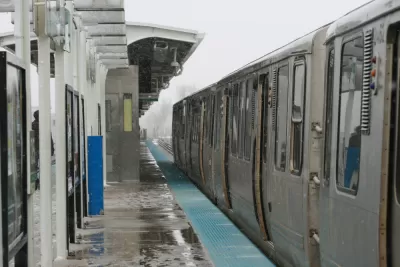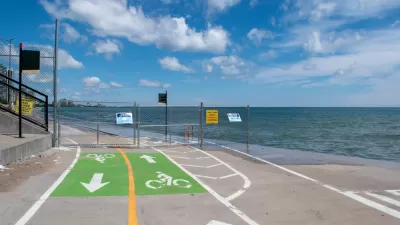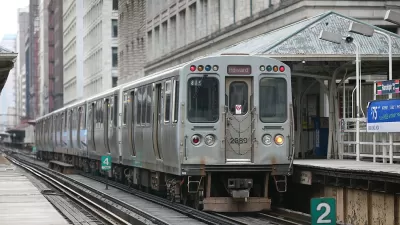Chicago Mayor Lori Lightfoot on Earth Day announced the forthcoming release of a new plan to reduce greenhouse gas emissions and prepare communities for the effects of climate change.

The office of Chicago Mayor Lori Lightfoot recently launched a 2022 Climate Action Plan, promising “to reduce carbon emissions while also increasing household savings, advancing environmental justice, and improving community health.”
John Greenfield reports on the new climate action plan for the city of Chicago, first noting Mayor Lightfoot’s less-than-stellar record on climate change action: “Given that Chicago mayor Lori Lightfoot recently called our multi-modal metropolis ‘a car city,’ and is currently advancing a plan to spend $7.5 million in taxpayer money on free gas cards, in effect paying people to create more greenhouse emissions, you could be forgiven for assuming that she doesn’t give a hoot about climate change."
As explained by Greenfield, Mayor Lightfoot’s a Climate Action Plan hasn’t actually been released in full, but the announcement was timed for Earth Day, so that explains the preemptory announcement. Plenty of work on the final plan has already taken place, however, including listening sessions, town halls, and a public comment period.
As reported by Greenfield, the 2022 Climate Action Plan will be built around five pillars: 1) lowering energy costs and implementing renewable energy for household consumption, 2) reducing waste, 3) creating a zero-emission transportation system, 4) committing to 100 percent clean energy for city operations by 2025 and for the entire city by 2035, and 5) investing in community resilience projects and implementing health and racial criteria in decision making.
The most obvious intersection with planning in that list is probably the zero-emission transportation system goal. Greenfield explains that the goal will include electrifying the city’s bus fleet and building 100 miles of upgraded bike ways in 2021 and 2022.
FULL STORY: Lightfoot’s Climate Action Plan calls for “a zero-emission transportation network”

Planetizen Federal Action Tracker
A weekly monitor of how Trump’s orders and actions are impacting planners and planning in America.

Chicago’s Ghost Rails
Just beneath the surface of the modern city lie the remnants of its expansive early 20th-century streetcar system.

San Antonio and Austin are Fusing Into one Massive Megaregion
The region spanning the two central Texas cities is growing fast, posing challenges for local infrastructure and water supplies.

Since Zion's Shuttles Went Electric “The Smog is Gone”
Visitors to Zion National Park can enjoy the canyon via the nation’s first fully electric park shuttle system.

Trump Distributing DOT Safety Funds at 1/10 Rate of Biden
Funds for Safe Streets and other transportation safety and equity programs are being held up by administrative reviews and conflicts with the Trump administration’s priorities.

German Cities Subsidize Taxis for Women Amid Wave of Violence
Free or low-cost taxi rides can help women navigate cities more safely, but critics say the programs don't address the root causes of violence against women.
Urban Design for Planners 1: Software Tools
This six-course series explores essential urban design concepts using open source software and equips planners with the tools they need to participate fully in the urban design process.
Planning for Universal Design
Learn the tools for implementing Universal Design in planning regulations.
planning NEXT
Appalachian Highlands Housing Partners
Mpact (founded as Rail~Volution)
City of Camden Redevelopment Agency
City of Astoria
City of Portland
City of Laramie





























